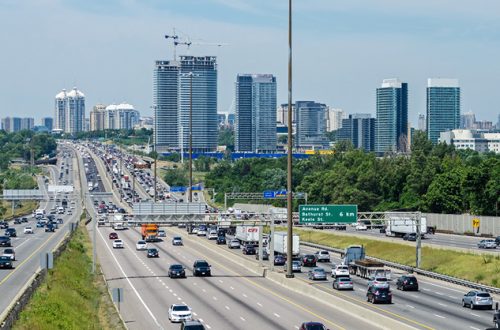Is your home at risk for frozen pipes? Water damage caused by burst pipes is a real threat during harsh Canadian winters. Here’s your guide to reducing the risk of your pipes freezing—and tips for thawing them out if they do.
5 Tips to Prevent your Pipes from Freezing
—
 1. Drain outside water lines
1. Drain outside water lines
Water lines in unheated or uninsulated areas are most at risk for freezing. Before winter arrives, turn off and drain outdoor water lines.
2. Keep the heat on
Keep the temperature in your house above 21 °C, particularly during extreme cold. Many of us turn the heat down at night to save energy, but it’s best to avoid this when very cold temperatures are in the forecast. You can save yourself a costly water damage repair and insurance claim.
3. Keep a tap dripping
Pipes can burst when water freezes and then expands. But water won’t freeze as easily if it’s running. When the weather is bitterly cold outside, leave a cold water tap dripping—the bathtub faucet is best. If you notice the water pressure dropping, it’s a sign your pipes are starting to freeze.
4. Keep interior doors open and garage doors closed
To make sure heat circulates freely, keep bathroom doors open. If you have water pipes in your garage, keep the garage doors closed to prevent freezing.
5. Think prevention before you go away
No one wants to come back from vacation to a flooded house, so prep your home before you leave for a long period of time:
- Turn off the water main to drain the water pipes.
- Starting at the top floor of the house, turn on all the taps and flush the toilets.
- Drain your hot water tank—turn off the inlet valve, attach a hose to the tank drain and run the water into the basement floor drain.
- Unhook your washing machine hoses and drain them.
- Ask a friend to check on your house—your home insurer might require this.
- Keep the heating set to a temperature only a few degrees lower than usual.
- Open kitchen and bathroom cabinet doors, as well as closet and attic doors, so warmer air can circulate.
Precautions to Prevent Damage
-
Move exposed pipes
Ask a professional to relocate exposed pipes to protect them from freezing, especially if you’ve had issues with frozen pipes in the past.
-
Insulate pipes
Insulate water pipes in unheated areas of the house, like the basement, garage and attic. Insulated pipes help reduce heat loss and keep water from freezing when temperatures drop. Doing this can also help cut your heating bill.
-
Thawing frozen pipes
Despite your best efforts, your pipes can freeze during an exceptionally cold spell. If you turn on your taps and only a trickle of water comes out, or the water pressure suddenly drops, you might have a frozen pipe. Here’s what to do:
- Shut off the main water valve.
- Warm the frozen pipes with a hair dryer, heating pad or portable space heater. Don’t use a blowtorch—it could damage plastic pipes or cause a fire.
- If you can’t reach the frozen pipe, or it won’t thaw, call a licensed plumber.
- Keep the nearest faucet turned on while treating a frozen pipe. As it melts, water will begin to flow through the faucet.
- Check the other faucets in your home—if one pipe freezes, others might too.
- Before turning on the water again, check for broken or damaged pipes—when in doubt, call a plumber. Better to spend a little money making sure everything is alright than risk more damage to your home.
- If you do have water damage, call your insurance company.
If you’re a policyholder with The Personal, protect your home with the Alert program. You’ll get alerts on your phone if there’s a water leak or a risk of freezing. And if you’re away on vacation, you can get alerts sent to a relative or friend.
For more on this topic, visit:
- 6 tips to avoid freezing pipes
- How to keep your pipes from freezing
- Discover Alert from The Personal
- Prep your home for a long absence
- Water damage: What every homeowner should know
- Stay safe with Radar: All-new weather alert service
—
OSPE has a partnership with The Personal Insurance Company with regards to home and auto insurance for our engineers, engineering graduates and engineering students.
To find out more, call 1-888-476-8737. Or visit thepersonal.com/https://ospe.on.ca/wp-content/uploads/2024/10/academy-banner-7.png.
The Personal refers to The Personal General Insurance Inc. in Quebec and The Personal Insurance Company in all other provinces and territories of Canada. The information and advice in this article are provided for informational purposes only. The Personal shall not be liable for any damages arising from any reliance upon such information or advice. The Personal recommends using caution and consulting an expert for comprehensive, expert advice.





Comments (3)
Leaving heating on is fine, but if you have a combi boiler with a condensate drain which runs to an external wall a few hours of very cold weather can make it freeze and cause burst pipes. It happened to a friend of mine last week.
Great list. Thanks for sharing this amazing post on how to prevent frozen pipes.
Leave a Comment